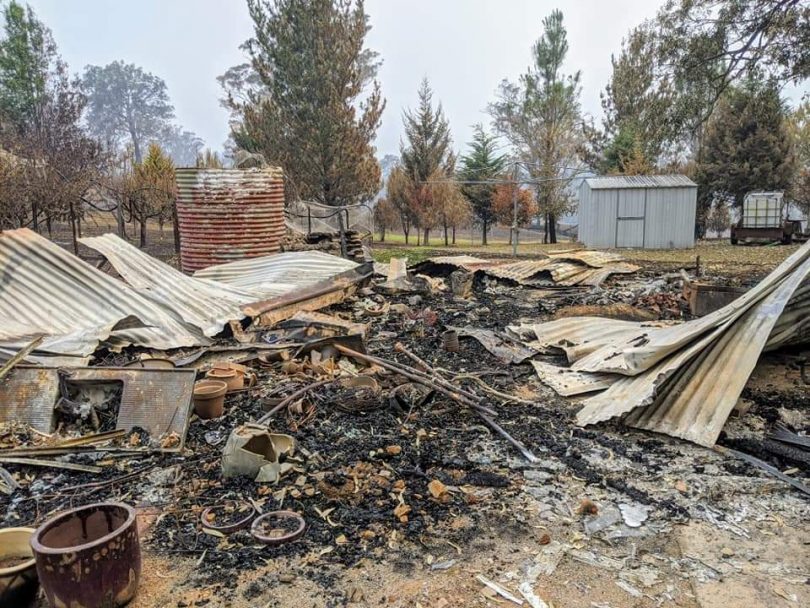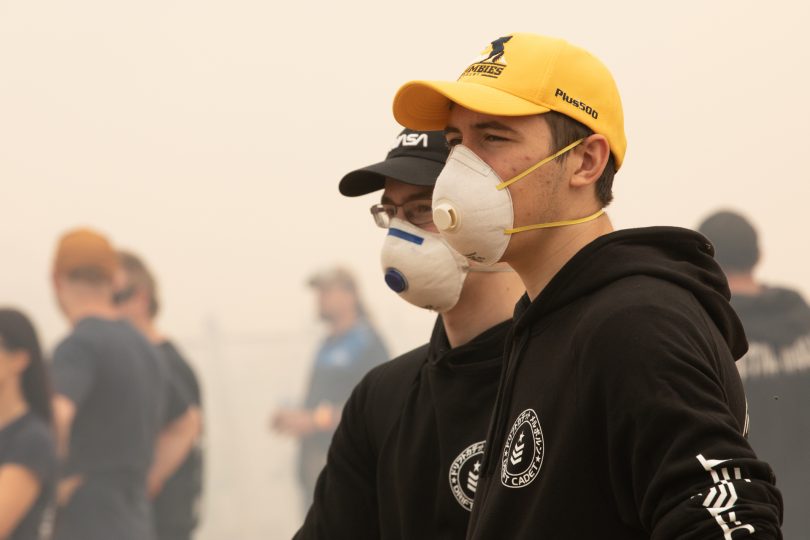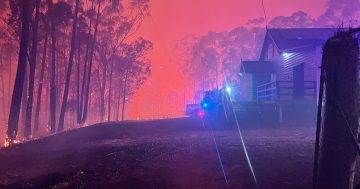
Part of Juanita Watters’ parents’ property at Cobargo that was destroyed by bushfire on New Year’s Eve. Photo: Supplied.
The Commonwealth Government’s bushfire recovery assistance has been expanded to include businesses that were not directly burnt by the fires, but businesses in Canberra and across the South West Slopes will miss out on the new grant.
The $10,000 grant is only available in 17 Local Government Areas (LGAs) in NSW, three in Victoria and one in South Australia. This means businesses who were impacted by smoke and lost tourism revenue in the ACT will be ineligible.
Despite close economic ties between the Canberra region and the South Coast, and the impact of bushfire smoke on tourism and hospitality industries deep into NSW, the grant will not cover the Goulburn-Mulwaree, Yass Valley or Tumut Shire LGAs.
To be eligible for the grant, a business’s revenue would need to have dropped by more than 40 per cent over a three-month period, compared with the previous year’s takings. The money can then be used to help cover the costs of recovery including expenses such as wages, utilities, fuel and financial advice.
CEO of the Council of Small Business Australia Peter Strong told Region Media that the 40 per cent threshold may be too high.
“We would prefer 30 per cent. We did have a debate about it, 30 is still a lot. But we still have something we did not have before,” he said.
“We always want more, everybody wants more but this is a really good move in the right direction. We asked for this from day one. The businesses that were indirectly affected are the ones we need to get to.
“For some businesses, $10,000 is enough, and for others, it might not be enough and they will decide not to open. We just have to wait and see.”
Acting CEO of the Canberra Business Chamber Graham Catt said it is not so much the amount of the grant – although it is important – but rather how quickly the cash can be injected into the economy that matters.
The slow rollout of bushfire recovery grants has become a major criticism of the Commonwealth Government. Many on the South Coast are still waiting for the cash to flow.
“There was an expectation that funds would be flowing to businesses quickly. But there are many businesses at the beginning of March who have not seen any money flow through,” Mr Catt said.
“$10,000 in that context as an immediate cash injection is the money that can make the difference between being able to continue trading or the necessity of closing down because the business is not sustainable.”

Hazardous bushfire smoke blanketed Canberra, ranking the city among the world’s most polluted cities on numerous occasions. Photo: Region Media.
However, it does not matter how fast the money comes in for businesses outside of eligible LGAs as small Canberran and regional businesses face the prospect of shutting up shop after a disastrous quarter.
More than a third of Canberra’s summer was spent with air quality levels above hazardous as bushfire smoke blanketed the ACT. Canberra ranked among the world’s worst air quality levels on numerous occasions.
“We know cafes had to close because the business was just not there for them to stay open. Certainly, in tourism and hospitality, there are a number of businesses in Canberra and the surrounding region that would meet that [40 per cent] criteria,” Mr Catt said.
“That 40 per cent should be the key criteria rather than the geographical location of a business.”
ACT businesses and those in the surrounding region who are not eligible for the $10,000 grants can still apply for concessional loans of up to $500,000. Following complaints concerning the laborious application process, the Federal Government has also announced an extra $18 million to remove red tape for the loans, making the process easier by requiring fewer documents and security requirements.
An extra $13 million is being pumped into the bushfire recovery effort to provide an additional 21 experts to recovery hubs to provide tailored advice to businesses in the fire-affected areas.
Canberra today. @windjunky @ShaneRattenbury @siobhanheanue pic.twitter.com/LKayIdSGdA
— Simon Troman (@SimonCTT) January 5, 2020
Mr Strong says although small businesses do not like getting into debt, the low-interest rates on these loans should not be written off so easily.
“The loans are still important. Most small business people do not want a loan – they hate being in debt – but the thing with these loans is that the interest rate is so low you do not have to do anything for a couple of years,” he said.
“It is a very good thing that needs to be sold a bit better.”
But Mr Catt says assistance – whatever the form – needs to be delivered now so that Canberra businesses can ride out a disastrous summer quarter.
“We have not heard too many stories yet but as time goes on and as businesses start to look back on that quarter of trading and start to assess their financial situation, that will be the decision point,” he said.
“There is a real risk there that businesses will have to close the doors because it is just not viable.”
For information about bushfire recovery assistance, visit the National Bushfire Recovery Agency.

















